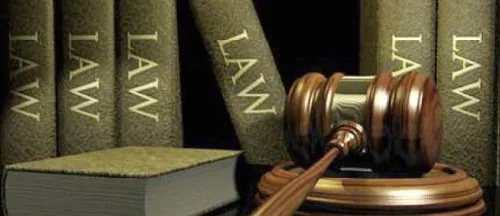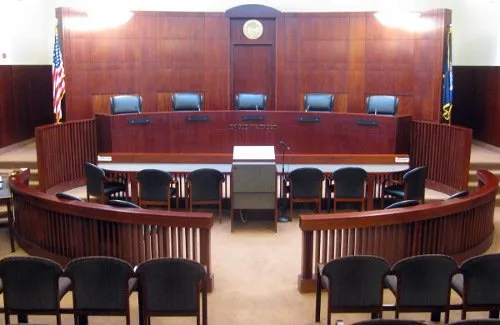This is a continuation of my previous Steemit article (https://steemit.com/politics/@larkenrose/political-mythology-101-part-one), listing some of the terms and concepts concerning politics and government which most people accept on faith, despite the fact that they are patently and provably false and invalid.

Myth #8: “You Agree to This By Living Here”
Disproof: The so-called “social contract” argument says that by merely living within the territorial jurisdiction of a certain ruling class, one has “agreed” to live by whatever rules those in power decide to call “law.” An actual contract is a specific and explicit mutual agreement. It is absurd to call it a “contract” when one side can arbitrarily decide what counts as the other side “agreeing” to abide by certain terms. To claim otherwise is to argue that it would be valid and correct for any street gang or Mafia to simply say, “By being in whatever area we claim as our turf, you agree to let us do whatever we want to you.”
Myth #9: “The Land of the Free”
Disproof: The place known as the United States is far less free today than it was even under the control of a monarch. The list of grievances against King George III spelled out in the Declaration of Independence are trivial compared to what is inflicted on the American people every day by their "own" government. The United States is not the most free country, economically or socially. Various detailed analysis of such things can easily be found online. More importantly, the equivalent of asking whose master is the least sadistic and domineering—which one whips his slaves the least, and doesn’t work them as hard—is not a measure of “freedom.” No slaves are free. Likewise, comparing the relative oppressiveness of various ruling classes is not a measure of freedom. There is no such thing as a “free country,” since the word “country” means the territorial jurisdiction under the control of a coercive ruling class.
Myth #10: “We Are the Government”
Disproof: This claim is patently false on its face. It is the equivalent of a car-jacking victim saying “I am the car-jacker.” If one is really unable to distinguish between, on the one hand, himself, and on the other hand, the group of people who demand tribute and obedience from him under threat of force, such a person is quite literally delusional.

Myth #11: “The Law of the Land”
Disproof: The literal reality is that what people are taught to view as “the law” does not come from “the will of the people,” or from “the land,” or from any other vague, abstract source. “Law”—meaning man-made legislation—is nothing more than official demands and commands, backed by the explicit threat of force, issued by the politicians who make up political bodies. The fact that others are allowed to petition, complain, and beg the politicians to enact different “laws” does not in any way mean that it is the people, or the “nation,” that are the source of such “laws.”
Myth #12: “The Rule of Law”
Disproof: It is a common refrain to say that Americans are lucky to live under the “rule of law” rather than the “rule of men.” However, since all such “laws” are simply threats and demands written and issued by human beings, it is a distinction without a difference.

Myth #13: “Due Process”
The idea that one must be provided with “due process” before one can be deprived of one’s liberty or property (as stated in the Fifth Amendment) is empty and meaningless when the “laws,” the procedures, the bureaucracies, the enforcers and the courts that decide such things are all created and controlled by the same group that is depriving people of their liberty and property. This is no different than a street gang saying, “We have carefully reviewed our own actions and have determined that we had the right to steal your car, steal your wallet and beat you up; we were merely enforcing the law, and you have received due process.”
Myth #14: “Government”
Yes, the very concept of “government” itself is bogus mythology. It amounts to believing in the Divine Right of Politicians—the notion that various pseudo-religious documents and rituals, such as constitutions and elections, can bestow upon a group of mere mortals the right to forcibly rule everyone else. It is no more rational or legitimate than the old “Divine Right of Kings” concept; the modern version just uses more complicated and convoluted rhetoric and mythology—such as all of the examples addressed above—to make it sound legitimate, moral and necessary. But it is not, and that is quite easy to prove.
Nearly all other terms connected to “government”—“law,” “regulation,” “crime,” “legality,” etc.—are equally artificial and illegitimate. In the next and final article in this three-part series, several independent logical proofs will be shown which each demonstrate that the idea of any political “authority”—the notion that any individual or group has the moral right to rule, and that everyone else therefore has a moral obligation to obey—is illogical to the point of being insane, as well as being inherently immoral and horrendously dangerous.
- ( stay tuned for part three ) * * *